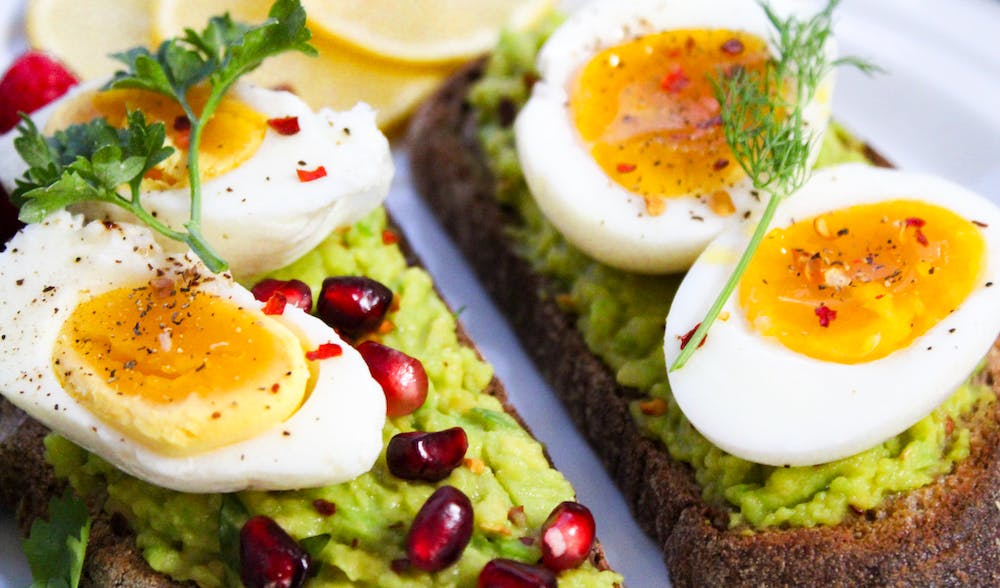Nutrition for Women’s Health: Meeting Unique Nutritional Needs
 Women have some special nutritional needs that differ from men. For example, women need more iron, calcium, and folate than men, especially during their reproductive years. These nutrients are essential for preventing anemia, osteoporosis, and birth defects. In this blog post, we will explore some of the best sources of these nutrients and how to include them in your diet.
Women have some special nutritional needs that differ from men. For example, women need more iron, calcium, and folate than men, especially during their reproductive years. These nutrients are essential for preventing anemia, osteoporosis, and birth defects. In this blog post, we will explore some of the best sources of these nutrients and how to include them in your diet.
 Iron is a mineral that helps transport oxygen in the blood and supports the immune system. Women need more iron than men because they lose blood during menstruation. The recommended dietary allowance (RDA) for iron for women aged 19 to 50 is 18 milligrams (mg) per day, while men only need 8 mg per day. Some of the best sources of iron are lean meats, poultry, fish, eggs, beans, lentils, tofu, spinach, and fortified cereals. To enhance iron absorption, pair iron-rich foods with foods high in vitamin C, such as citrus fruits, tomatoes, peppers, and broccoli.
Iron is a mineral that helps transport oxygen in the blood and supports the immune system. Women need more iron than men because they lose blood during menstruation. The recommended dietary allowance (RDA) for iron for women aged 19 to 50 is 18 milligrams (mg) per day, while men only need 8 mg per day. Some of the best sources of iron are lean meats, poultry, fish, eggs, beans, lentils, tofu, spinach, and fortified cereals. To enhance iron absorption, pair iron-rich foods with foods high in vitamin C, such as citrus fruits, tomatoes, peppers, and broccoli.
 Calcium is a mineral that helps build and maintain strong bones and teeth. Women need more calcium than men because they have a higher risk of developing osteoporosis, a condition that causes bones to become weak and brittle. The RDA for calcium for women aged 19 to 50 is 1,000 mg per day, while men need 800 mg per day. Some of the best sources of calcium are dairy products, such as milk, yogurt, cheese, and cottage cheese. Other good sources are dark green leafy vegetables, such as kale, collard greens, and bok choy; soy products, such as tofu, soy milk, and edamame; almonds; and fortified foods, such as orange juice and cereals.
Calcium is a mineral that helps build and maintain strong bones and teeth. Women need more calcium than men because they have a higher risk of developing osteoporosis, a condition that causes bones to become weak and brittle. The RDA for calcium for women aged 19 to 50 is 1,000 mg per day, while men need 800 mg per day. Some of the best sources of calcium are dairy products, such as milk, yogurt, cheese, and cottage cheese. Other good sources are dark green leafy vegetables, such as kale, collard greens, and bok choy; soy products, such as tofu, soy milk, and edamame; almonds; and fortified foods, such as orange juice and cereals.
 Folate is a B vitamin that helps make DNA and red blood cells. Women need more folate than men because it is crucial for preventing neural tube defects in babies during pregnancy. The RDA for folate for women aged 19 to 50 is 400 micrograms (mcg) per day, while men need 300 mcg per day. However, women who are pregnant or planning to become pregnant should take a prenatal vitamin that contains 600 mcg of folate per day. Some of the best sources of folate are leafy green vegetables, such as spinach, lettuce, and broccoli; beans and lentils; avocados; oranges and orange juice; nuts and seeds; and fortified breads and cereals.
Folate is a B vitamin that helps make DNA and red blood cells. Women need more folate than men because it is crucial for preventing neural tube defects in babies during pregnancy. The RDA for folate for women aged 19 to 50 is 400 micrograms (mcg) per day, while men need 300 mcg per day. However, women who are pregnant or planning to become pregnant should take a prenatal vitamin that contains 600 mcg of folate per day. Some of the best sources of folate are leafy green vegetables, such as spinach, lettuce, and broccoli; beans and lentils; avocados; oranges and orange juice; nuts and seeds; and fortified breads and cereals.
 By eating a balanced diet that includes a variety of these foods, you can meet your unique nutritional needs and support your overall health and well-being. Remember to drink plenty of water, limit your intake of added sugars, salt, and saturated fats, and enjoy your food!
By eating a balanced diet that includes a variety of these foods, you can meet your unique nutritional needs and support your overall health and well-being. Remember to drink plenty of water, limit your intake of added sugars, salt, and saturated fats, and enjoy your food!





